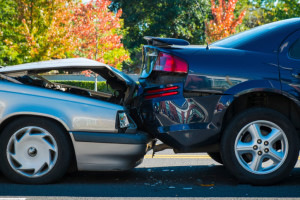

 Type of Vehicle Accident: The Rear Ender
Type of Vehicle Accident: The Rear EnderRear end collisions are common and characterized by a car hitting the vehicle in front of it. The impact can be negligible or deadly depending on the speed of the vehicles and other factors.
There are many reasons for rear end collisions. Excess speeding, inattention, poor road conditions, dangerous weather, tailgating, and using cell phones are all culprits. Sometimes the result is a simple fender bender. In the worst case, however, drivers can come out with significant injuries that result in long-term suffering and consequences.
Certainly speeding and tailgating are some of the main causes of rear-enders. Drivers should keep enough space in front of them and try to safely switch lanes if someone is tailgating. Michigan has a law on the books known as the Michigan Basic Speed Law, which speaks to speeding and tailgating. It says, in part, that vehicles should travel at a “careful and prudent speed” that is “reasonable and proper,” in proportion to the “traffic, surface, and width of the highway and of any other condition” at the time. Drivers should not be going faster than would allow “stop[ping] within the assured, clear distance ahead.”
Finally, the front driver making a sudden lane change and shortening the stopping distance, and unreasonable sudden braking by the front vehicle, and in effect suddenly taking away the rear vehicle's stopping distance.
In Michigan, no-fault insurance covers most accidents regardless of fault. This means that even if it is your fault that you rear-ended the car in front of you, no-fault insurance would cover the injuries resulting from the accident. No fault insurance covers you, family members in your household, and passengers, as well as bicyclists, motorcyclists, pedestrians, and uninsured motorists involved in the accident.
No fault insurance consists of personal injury protection (PIP), property protection (PPI), and residual liability insurance.
PIP benefits would cover all medical expenses and all reasonable expenses for reasonably necessary items and services for care, recovery, and rehabilitation. It can cover up to 85% of wage losses up to 3 years. In addition, it can cover up to $20 a day in replacement services for everyday tasks you or a loved one would have done had there been no injury. Therefore, if you rear-end someone and cause them injury — for example, concussion or broken bones — then your no fault insurance would pay for that, in addition to any you injuries you sustain.
PPI benefits cover damage your car does to other peoples’ property — for instance, buildings, properly parked cars, mailboxes, fences, and walls. Unfortunately, no-fault insurance does not cover damage to cars involved in the accident. If you want insurance of this nature, then you need to get supplemental insurance coverage.
Residual liability insurance can cover residual costs from a lawsuit if someone goes to court regarding serious bodily injury, permanent disfigurement, or death. Because judgments vary and can be quite costly, many people purchase insurance at additional limits. Usually no fault insurance covers costs for personal injuries, but if injuries are serious, someone could try to take the case to court. In a rear end collision, injuries may not rise to this level unless the accident was high impact. Traumatic brain injury or paralysis would be injuries that would merit extra compensation and attention.
At Sachs Waldman, our experienced car and truck accident attorneys have If you or a loved one has been in a rear end collision. Contact our Detroit personal injury law firm for a free consultation at (313) 965-3464 or fill out our online form.
© 2025 Michigan Injury Attorneys
View Our Disclaimer | Privacy Policy
Detroit Personal Injury & Car Accident Attorneys